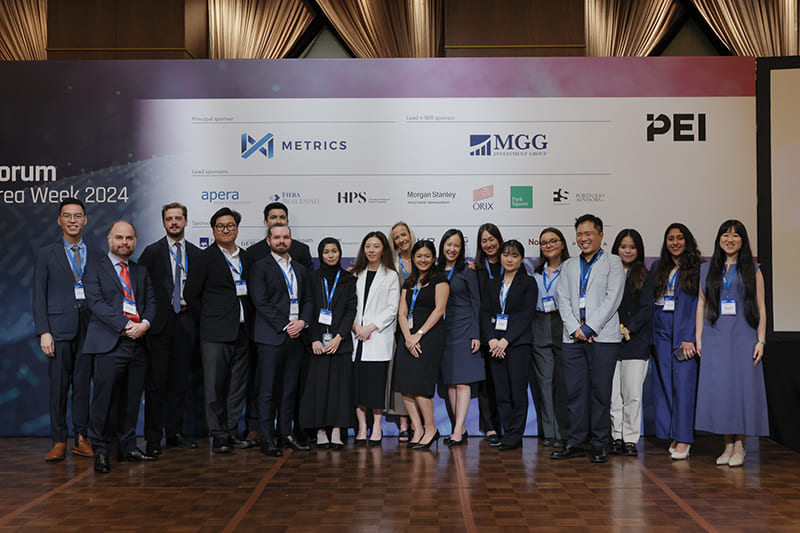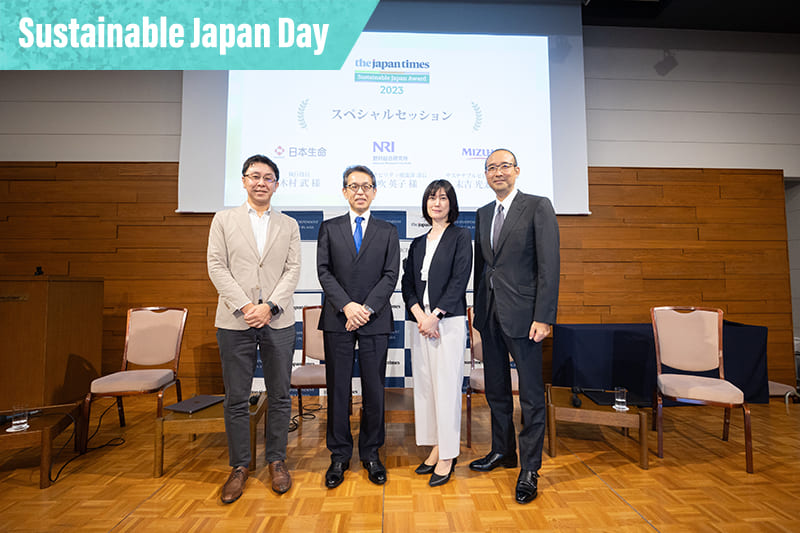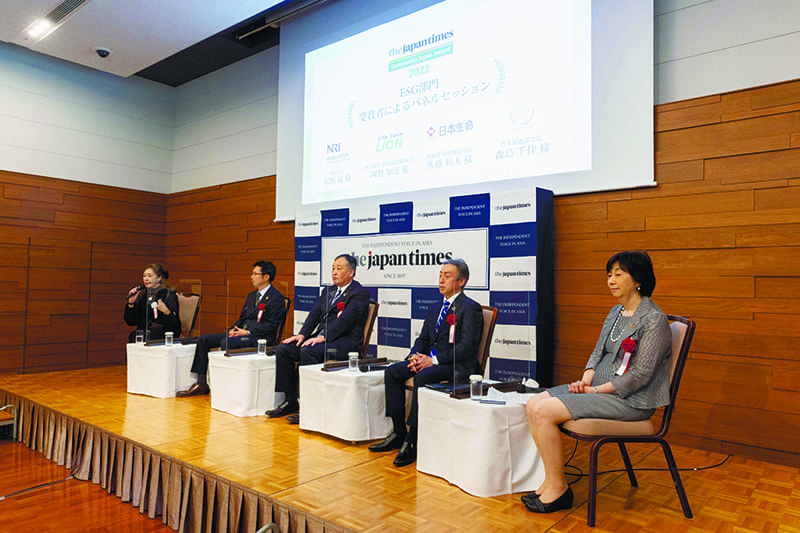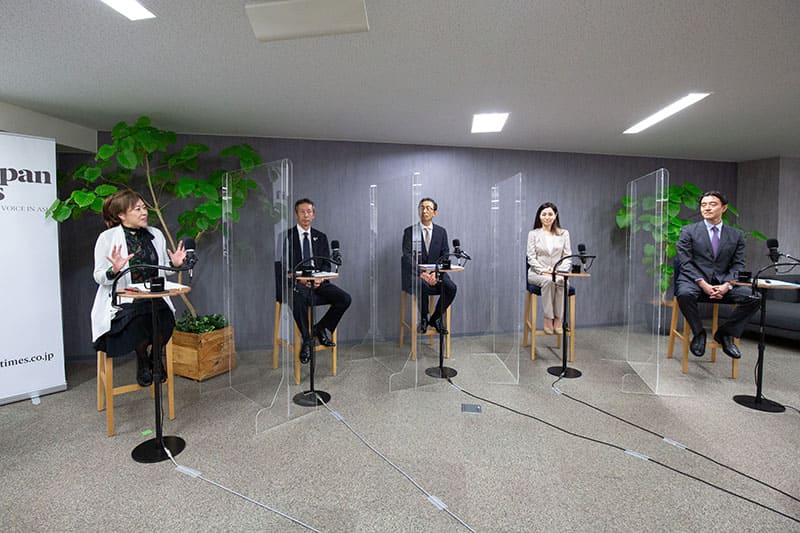May 17, 2024
Nippon Life engages to encourage green transition
Sustainable Japan Network

Engaging with high-emitting companies to spur transformation of their business rather than divesting from them is becoming increasingly important to combat climate change, said an executive officer of Japan’s biggest insurance company. “Thinking about society as a whole, it is important that we asset owners also back up the global trend so that the world can make progress toward carbon reduction goals,” said Shinichiro Kashima, the chief sustainability officer for Nippon Life Insurance Co. Its cumulative thematic investment that contributes to the U.N.’s sustainable development goals etc. totals ¥2.6 trillion ($16.6 billion).
A growing number of European and U.S. institutional investors have pledged to divest from fossil-fuel assets. But although dumping such stocks and bonds may make portfolios look clean, this approach alone would not suffice to solve the root problem, especially in Japan, which currently depends on fossil fuels for about 70% of its power, he said.
“What’s necessary is encouraging their transition away from fossil-fuel dependency, and to that end, how to cut their emissions is important,” Kashima said, pointing to the importance of institutional investors actively engaging with investee companies that emit large amounts of greenhouse gases in order to prompt them to take steps toward greener processes.
To step up carbon reduction, Nippon Life has focused on engagement with its investee companies. It has identified about 70 that heavily emit carbon dioxide and is urging them to disclose emissions data and create road maps to net-zero emissions by 2050 while also monitoring their progress toward midterm reduction targets.
According to the Ministry of the Environment, about 60% of Japanese industrial carbon emissions come from sectors such as iron and steel, chemicals and machinery production.
Nippon Life’s stance is also reflected in its latest guidelines for investment, released last year. In the new policy of negative screening, excluding certain types of companies that do not meet its investment criteria, the insurance company says it will exclude new financing for oil and gas projects if they do not take measures to reduce carbon emissions.

He said the new policy is based on guidelines by the Net-Zero Asset Owner Alliance, a global alliance of asset owners, including insurers and pension funds, that are committed to achieving net-zero greenhouse gas emissions in their portfolios by 2050. The alliance calls on consumers and suppliers of oil and natural gas to set targets for reducing emissions with established pathways toward limiting global warming to a maximum of 1.5 degrees Celsius.
Kashima was elected last year as a member of the alliance’s steering group.
Phasing out fossil fuels is an urgent issue amid the increasing destructive signs of climate change that are being seen in many parts of the world, including record-high temperatures, droughts, wildfires, torrential rains and devastating floods.
On April 30, environment and energy ministers from the Group of Seven agreed to phase out existing coal-fired power plants during the first half of the 2030s, or on a timeline consistent with the 1.5-degree goal.
In terms of ESG disclosures, Japanese firms are proactive, Kashima said. But one thing they could do better is to explain their strategy to investors and show how they intend to maximize their value in the future. “What they could do more is to disclose a whole story of what they plan to do and what kinds of social impacts they would have in the future,” he said.
Kashima said Nippon Life’s investment in the Japanese GX (green transformation) economy transition bonds is another step to encourage the country’s energy transition. The government plans to issue a total of ¥20 trillion in bonds over the next 10 years to support Japan’s technological development in areas such as renewable energy, storage batteries, next-generation nuclear reactors, hydrogen-based steelmaking, and carbon capture and storage.
Nippon Life is taking steps to promote sustainability management to solve social issues based on three areas: people, community and the environment.
For people, Nippon Life aims to provide security and safety, which is the essence of life insurance. For community, it is making contributions to a wide range of communities through its nationwide sales offices. For the environment, the several steps it is taking include reducing the use of plastic files, in order to avoid damaging marine life, and paper documents so as to protect forests. Salespeople formerly conventionally used these materials when they visited customers.
Also, Nippon Life set up a new section last year to promote its sustainability-related activities, and then upgraded it this year into a department. The reason for the reorganization “is, for one thing, to create sustainability-related efforts with a sense of unity inside the company,” Kashima said. “For another, it is to convey more messages to society about each effort.”

















